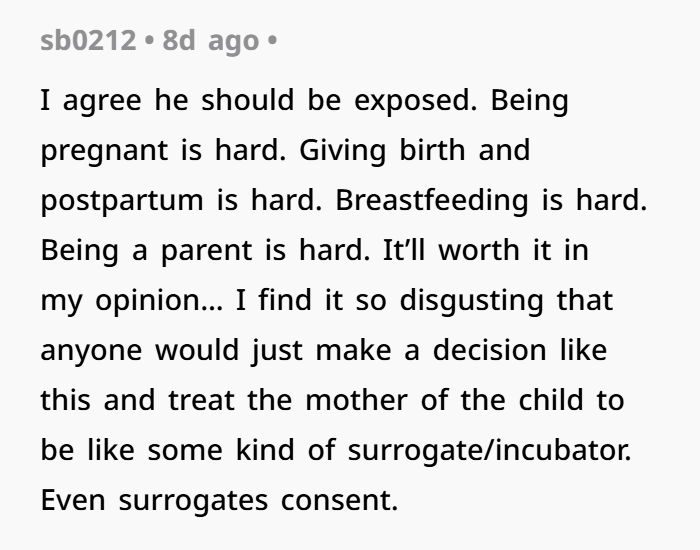When Love Turns Controlling: What to Do When Your Partner Crosses Boundaries Over Life Decisions
Relationships require trust, communication, respect for one another, and mutual decision making power — especially around a life changing topic like children. Case in point: a 26-year-old woman was left stunned by her boyfriend’s “under the radar” behaviour on having kids Despite their seemingly perfect three-year relationship, trouble was brewing when Corinna’s boyfriend began undermining their plans for having kids - due to the influence of his mother. He destroyed not just her trust but her bodily autonomy by tossing out her birth control pills and lying to his parents and friends about their plans.
This brings up complicated questions about agency, coercion, and consent, and needing to have nonnegotiables in a relationship. She is torn between the emotional trauma of betrayal and pressure from his family and seeking clarity on how to move forward. How can she take back control of her own life, restore boundaries, and see whether her relationship is something she wants moving forward?
Fertility questions are something every couple needs to really work out ahead of time

A woman realized her partner had started hiding her birth control in secret
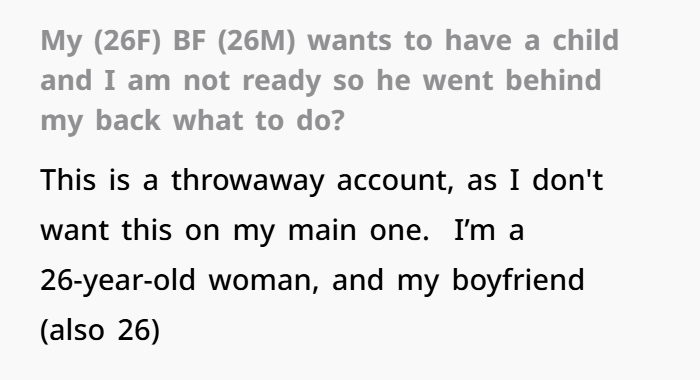



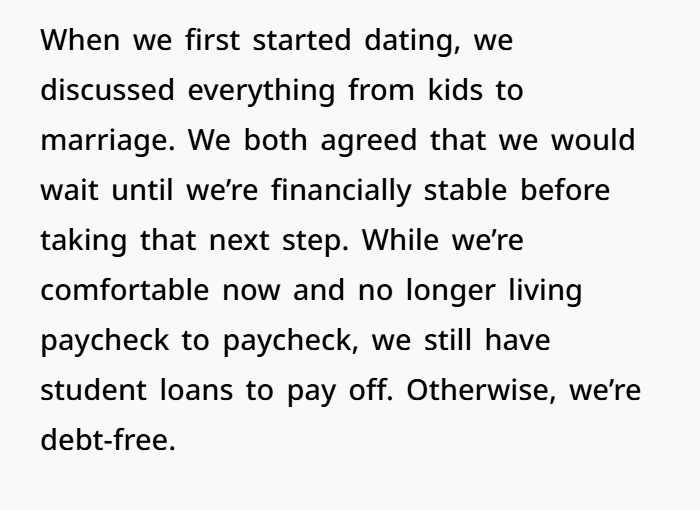
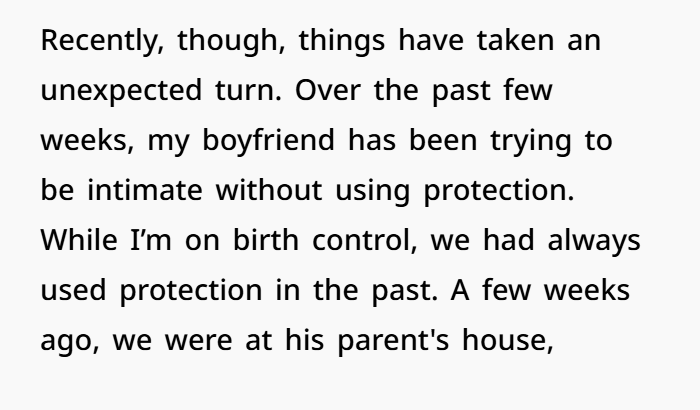

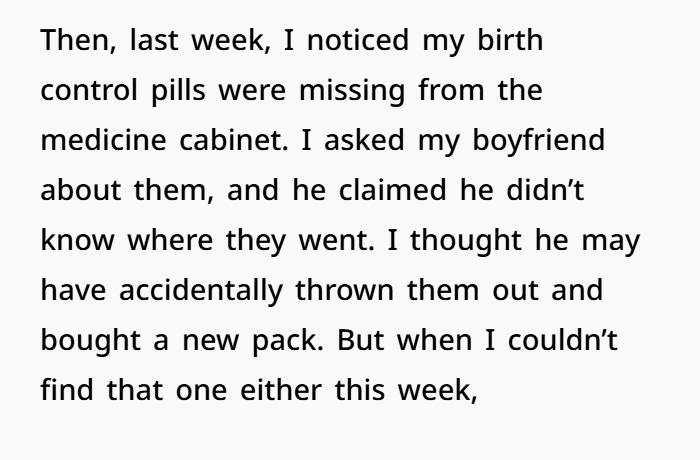
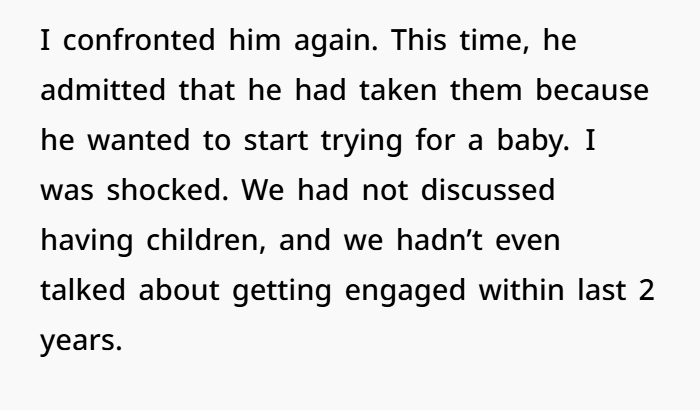

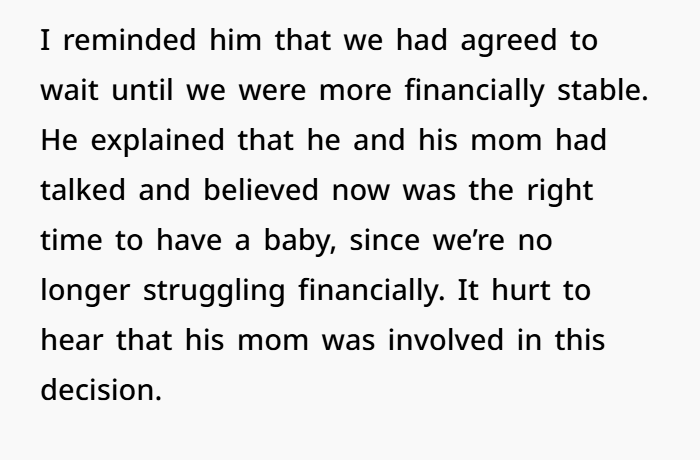
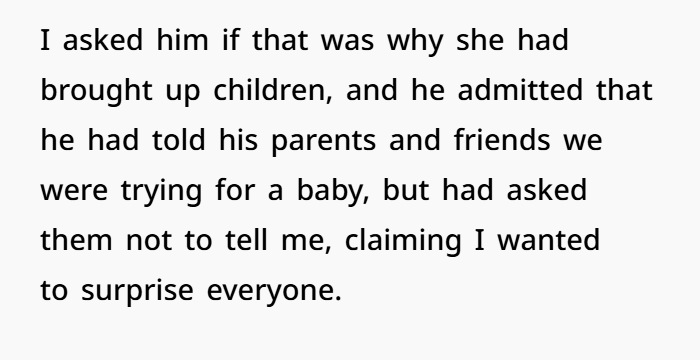
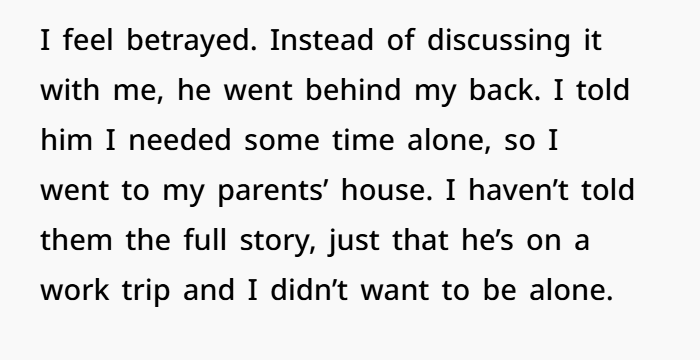
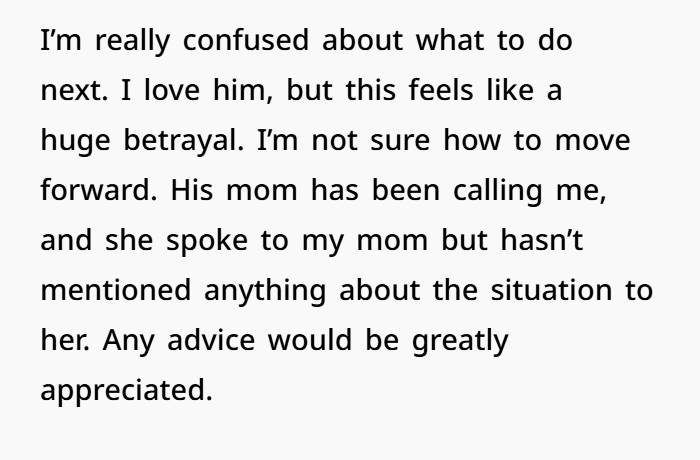

Understanding Bodily Autonomy, Consent, and Next Steps
It touches upon important issues of bodily autonomy, trust in relationships, and how third parties play a role in streamlining consent out of existence. So, let us deconstruct these things; after all, papa down the road isn´t making articulations for nothing?
1. Bodily Autonomy and Consent in Relationships
As the foundation of freedom, bodily autonomy enhances individual liberty. It is the idea that a person should be able to choose whether or not to make a decision regarding their own bodies without force or persuasion—for even in committed relationships. From a legal and ethical standpoint, tampering with someone birth control is an outright egregious breach of trust. Many places consider acts of this nature to fall under the umbrella of reproductive coercion — a kind of abuse that may include birth control sabotage or forcing the partner to become pregnant.
It violates a victim’s agency and can be traumatic and psychologically damaging for many years. For all the topics detailed and discussed in the paper, women who reported experiencing this type of control at some point tended to be more anxious or depressed very soon after delivery than those who did not experience such behaviors, according to the published study in the journal Obstetrics & Gynecology. You must realize that any action that strips you of the ability to make your own choices—particularly one regarding parenthood—is a violation of trust and respect.

2. The Influence of Family and External Pressure
And then you have your boyfriend’s mother involved, which complicates this even more. Although family support is normal, it is wrong when parents impose their will regarding key life events. Research on family dynamics and relationship satisfaction, such as those from the American Psychological Association, indicates that too much parental involvement can generate friction and confusion in romantic couples.
In this case, not that confiding in parents is always bad, but, he shared your potential future family plans without your knowledge and permission, with his mother? No boundaries. Beyond the violation of your privacy, it destroys that aspect of the partnership where both should have equal voice. If the relationship is going to move on, those boundary line issues need to be dealt with.
3. Steps to Rebuild Trust and Regain Autonomy
To move forward, both emotionally and practically, here are some steps to consider:
- Seek Professional Guidance: Engaging in couples counseling could help navigate this betrayal and assess whether the relationship can be salvaged. A neutral third party can provide tools for effective communication and help unpack the underlying issues.
- Prioritize Self-Care: Spend time reflecting on your needs and values. Journaling or talking with trusted friends can help clarify your emotions and what you want from the relationship.
- Establish Firm Boundaries: If you decide to continue the relationship, communicate clear boundaries about decision-making, privacy, and external influences. If he struggles to respect these boundaries, it may indicate deeper incompatibilities.
- Evaluate Legal Protections: If you feel unsafe or manipulated, consider seeking legal advice. Reproductive coercion is increasingly recognized by courts, and knowing your rights can provide additional security.
4. Relationship Red Flags: When Trust Is Irreparable
To be clear though, a few actions — perhaps around deceit or coercion — point to bigger issues in a relationship. A survey by LoveisRespect. According to org, one of the top reasons people break-up is trust violations. If this breach of trust feels absolutely monumental, it is perfectly understandable to make your well-being your top priority and treat the relationship as negatively as you see fit and end it.
5. Communicate with Family and Support Networks
Considering how much his mother is involved, it could be wise to disclose the circumstances to your family openly. So you have a strong support system irrespective of the choice you make.
This kind of betrayal reiterates the principle of bodily autonomy, mutual respect, and articulated consent in relationships. Although love can survive a lot, things that attack trust and autonomy need to be assessed. Find support to do this if needed, but reclaim your power and make choices that are right for you – be it counseling, boundaries, or walking away – if you do not feel safe.
People were shocked and some gave some advice



